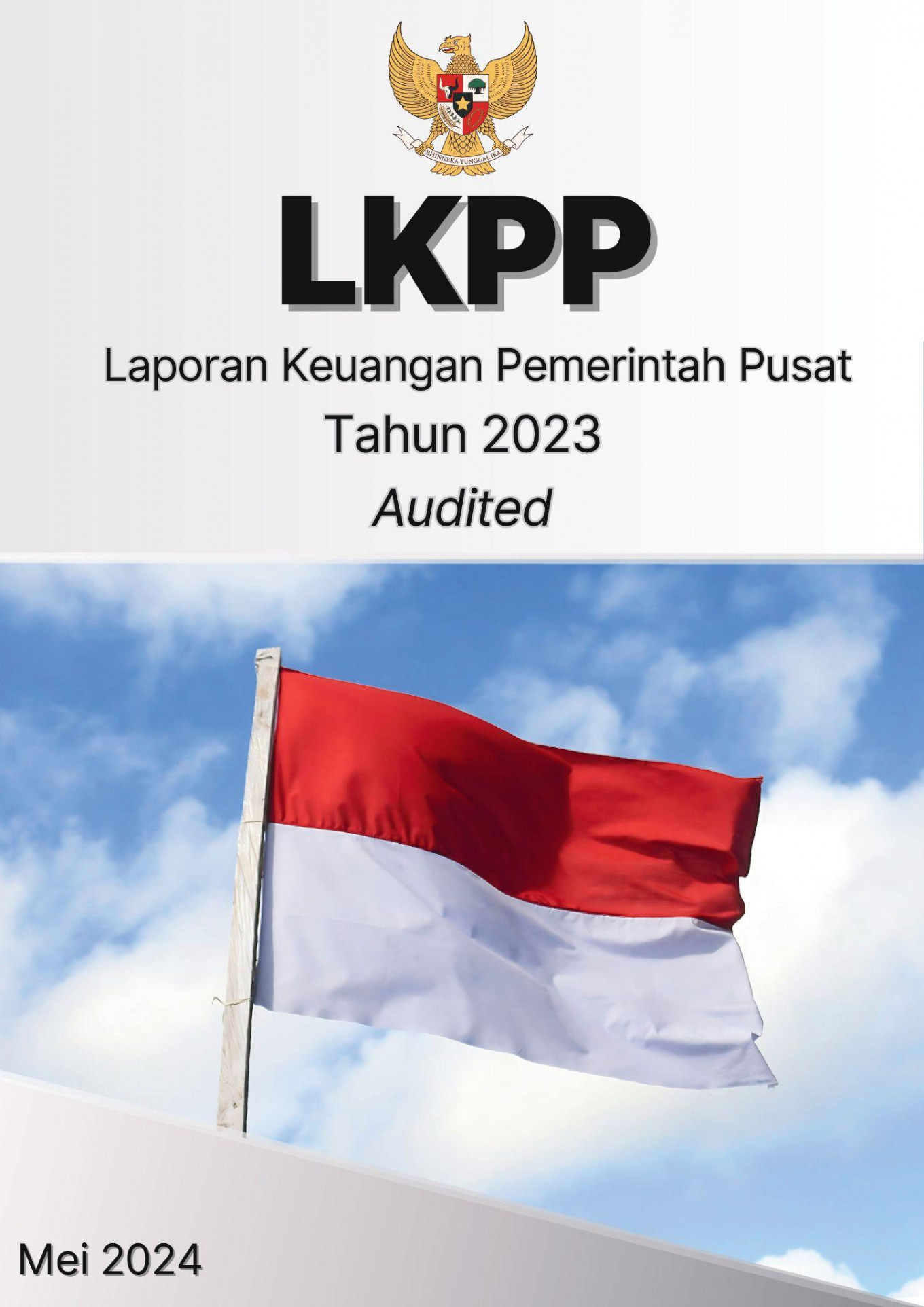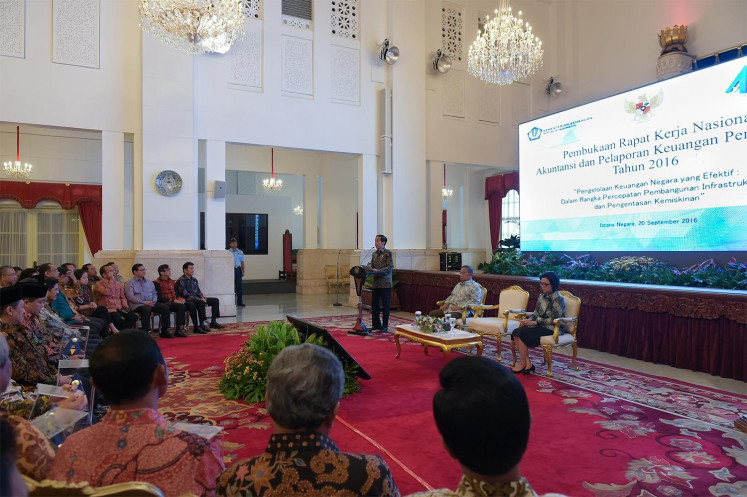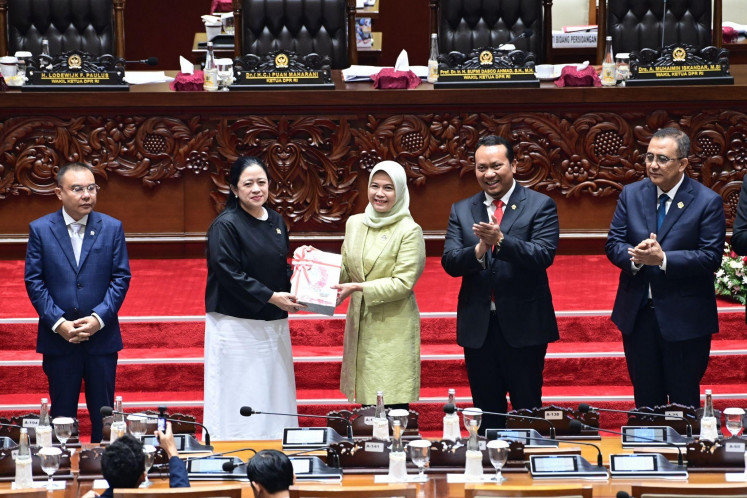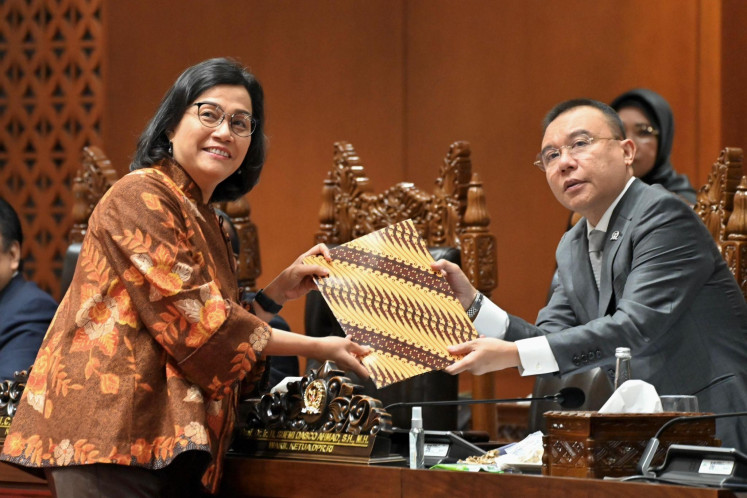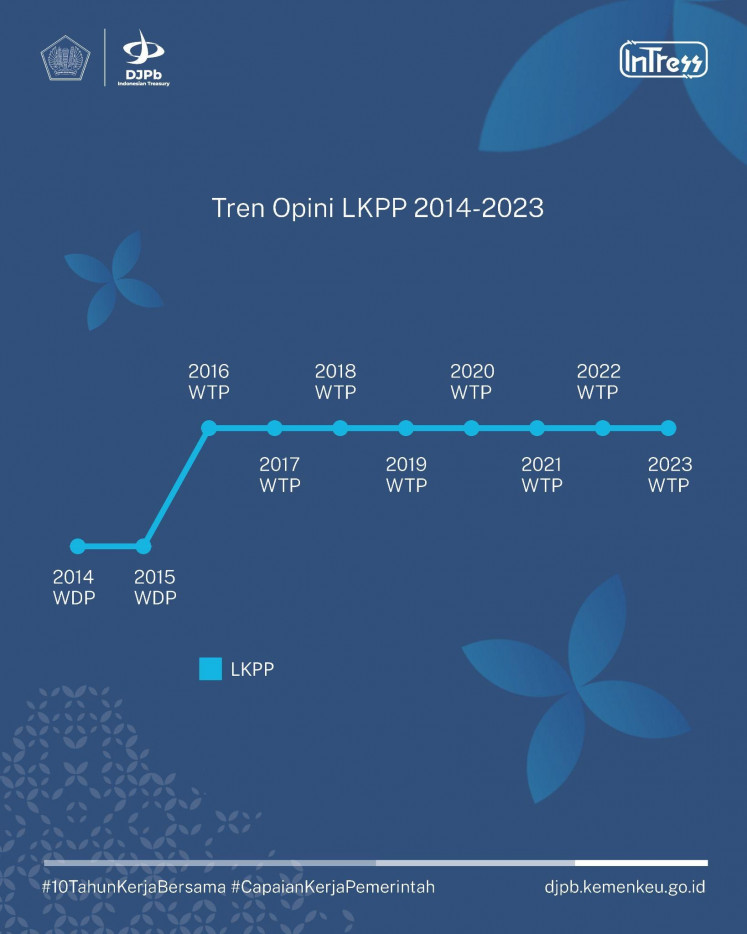Popular Reads
Top Results
Can't find what you're looking for?
View all search resultsPopular Reads
Top Results
Can't find what you're looking for?
View all search resultsCredible, transparent and accountable: A decade of state budget achievements
Change text size
Gift Premium Articles
to Anyone
T
he state budget (APBN) cycle, a complex and comprehensive process from planning to accountability, plays an important role in outlining the government’s achievements and financial performance for the year.
In the last 10 years, APBN accountability as manifested through the Financial Report of Central Government (LKPP), has experienced various dynamics and transformations, presenting credible, transparent and accountable evidence that the APBN is present amid the life of the nation.
Accrual-based accounting
The necessity of meeting accounting standards produces quality, reliable and relevant financial reports, as well as the recognition and measurement of financial transactions that will in turn produce comparable information.
To fulfill the mandate of the State Finance Law, the issuance of Government Regulation (PP) No. 71/2010 on government accounting standards (SAP) provides the government with a basis for implementing accrual-based accounting.
Accrual-based accounting is considered to be more effective in describing the government's financial performance as it records, presents and discloses all state financial transactions, both rights and obligations, in the Financial Report of Central Government (LKPP).
The first year of accrual-based accounting in 2015 was marked by the preparation of accrual-based financial reports in all ministries and institutions, which were then consolidated in the LKPP. This signified an important milestone in realizing better transparency and accountability in government financial management.
Development of LKPP opinion
The government's financial reporting journey began in 2005 with the preparation of the 2004 LKPP facing issues with the preparation of a credible initial balance, including tracing State-owned Assets (BMN) assets, organizing government accounts and improving the administration of state expenditures and revenues.
The Audit Board of the Republic of Indonesia (BPK) issued a disclaimer opinion in the five years from the 2004 to 2008 LKPP, improving to a qualified opinion of LKPP 2009.
From 2010 to 2015, the government prepared infrastructure to achieve two targets, the realization of accrual-based LKPP and achieving the best audit grade of unqualified opinion (WTP).
Information systems and regulations related to the implementation of accrual-based SAP play an important role in efforts to achieve both targets, such as the State Treasury and Budget System (SPAN), Government Revenue Module (MPN) and the Accrual Based Accounting System for Line Ministries (SAIBA). In terms of regulation, the government prepared rules regulating the implementation of accrual-based SAP starting from accounting policies and accounting systems, to the issuance of technical instructions.
The government obtained an unqualified opinion from the BPK for the first time with the 2016 LKPP, maintaining the achievement for eight consecutive years until the 2023 LKPP.
Efforts to maintain an unqualified opinion
Maintaining an unqualified opinion for eight consecutive years is no easy feat, with different challenges each year in presenting accountability for every program implemented in a credible and transparent manner.
In the 2018 LKPP, the government was asked to explain the revaluation process that caused a significant increase in fixed assets, and the BPK accepted the results of the asset revaluation in question in the 2019 LKPP with an increase in fixed assets from Rp 1,931.05 trillion (US$124.45 million) to Rp 5,949.60 trillion.
With extraordinary policies issued to maintain the national economy amid the COVID-19 pandemic, the government was also accountable for the Coronavirus Handling and National Economic Recovery (PC-PEN) program with a total realization of Rp 1,627.23 trillion over three years, shown in the LKPP data for 2020, 2021 and 2022.
The improvement of the LKPP quality is inseparable from the government's steps to improve the system and procedures for APBN implementation; regulations, policies and technical instructions for accounting; the quality of guidance for the Accounting System for Line Ministries (SAI) and regular monitoring of the completion of BPK recommendations. BPK data show that as of the second half of 2023, the government had completed 987 recommendations, or 96.56 percent from 2004 to 2022.
Accountability for the APBN every year is stipulated through the Law on accountability for the implementation of the APBN (UU P2 APBN), which was formulated through a discussion mechanism in the House of Representatives. The House submits recommendations that play an important role in improving the quality of state financial accountability, which the government has also committed to following up on.
In terms of regulations, improvements are made every year to accommodate various recommendations and adjustments in regard to developments in business processes, aiming to improve data quality, maintain accountability and transparency of the LKPP and anticipate audit risks for the next period.
A number of regulations were improved in 2023, including through the Minister of Finance Regulation (PMK) on changes to the central government accounting policy, PMK on the accounting system and financial reporting for special transactions and PMK on the central accounting system and financial reporting.
Crucial improvement efforts in the technical preparation of the LKPP in the last 10 years include the implementation of automated reconciliation and consolidation of agency financial data under Financial Report of Line Ministries (LKKL) through the E-Rekon&LK system in 2016.
This year, the piloting of integrated financial management information system for Spending Unit of Line Ministries (SAKTI) was also carried out as a means for agencies in financial management covering the planning stages to budget accountability. SAKTI integrates all previously used agency applications in a single database, carrying out all accounting and reporting entities’ transactions electronically.
In 2022, all ministries and institutions fully utilized SAKTI as a system that integrates the planning and budgeting process, implementation and accountability of the APBN in government agencies.
The government developed the Integrated SPAN-LKPP application in 2018, which was used to accommodate the consolidation process and preparation of a better LKPP. Improvements were made to the financial management application in 2019, followed by the launch of the Chart of Account (BAS) mobile app. The app comes with a list of codifications and classifications related to financial transactions that have been systematically compiled as a guideline for planning, budgeting, budget implementation and government financial reporting.
Unqualified opinion: what's next?
Grafik 1. The Road for Unqualified OpinionThe government continues to integrate performance reporting with financial reporting as an effort to improve the quality of accountability for the APBN. This integration is carried out based on the output of each planned program or activity, thus all output achievements can be used as evaluation material in achieving the outcomes of the planned program.
Furthermore, the LKPP serves as an instrument to evaluate programs that have been implemented and become a basis for future policy making. Efforts to compile an increasingly credible and transparent accountability for the APBN are expected to be proof that the APBN is truly present in the midst of society, as well as being a state instrument that plays an effective role in realizing a prosperous and just Indonesia.
Source: Finance Ministry

